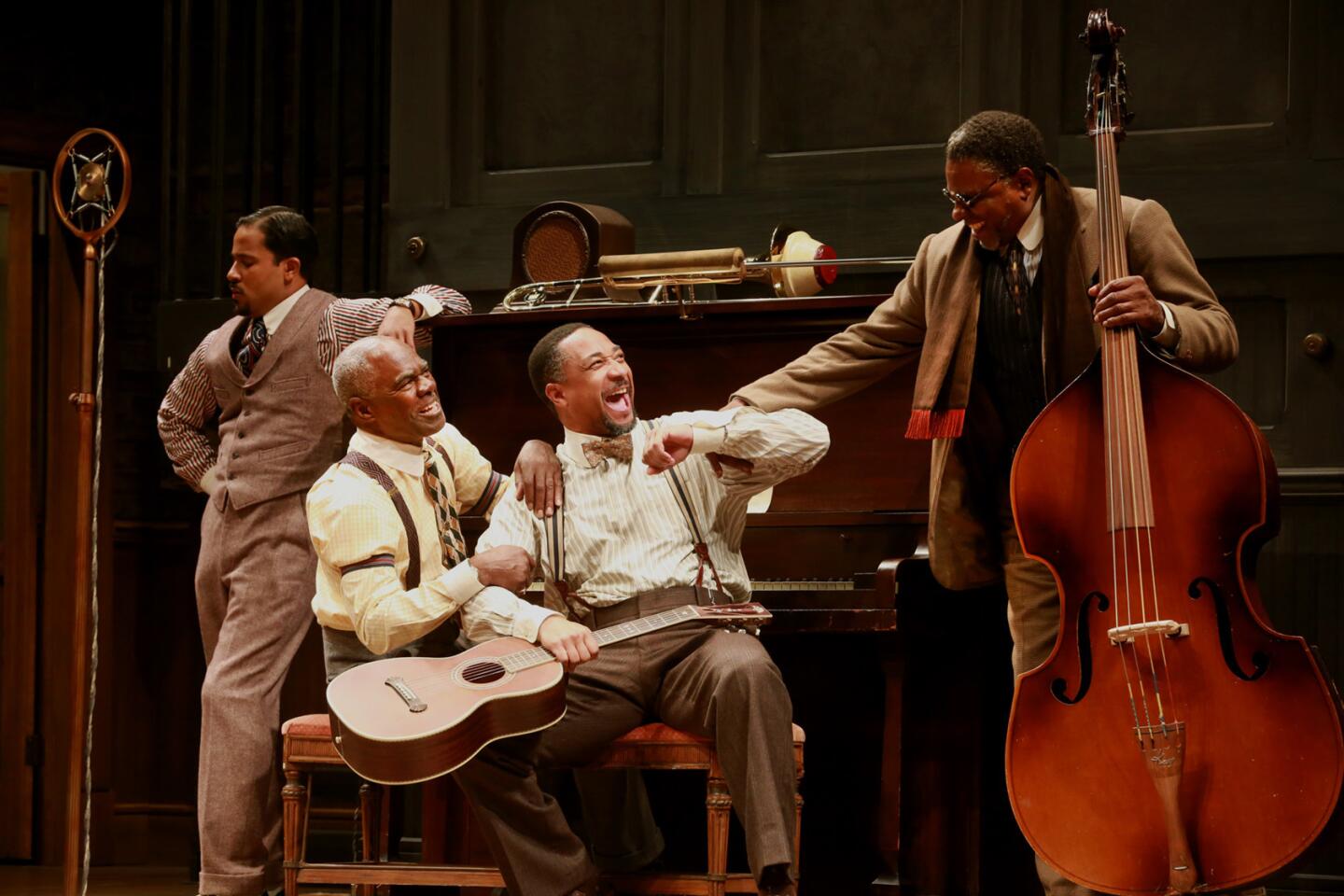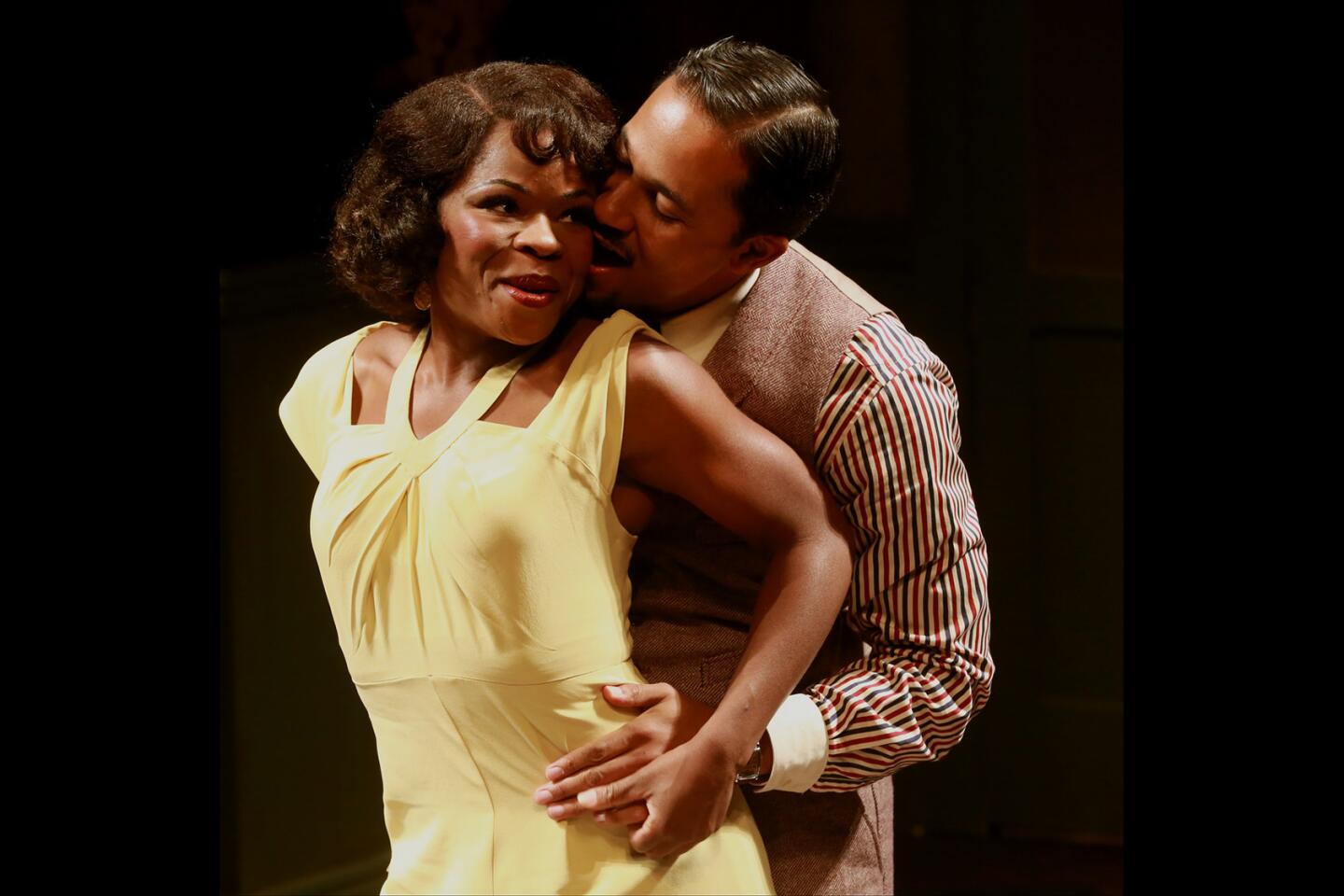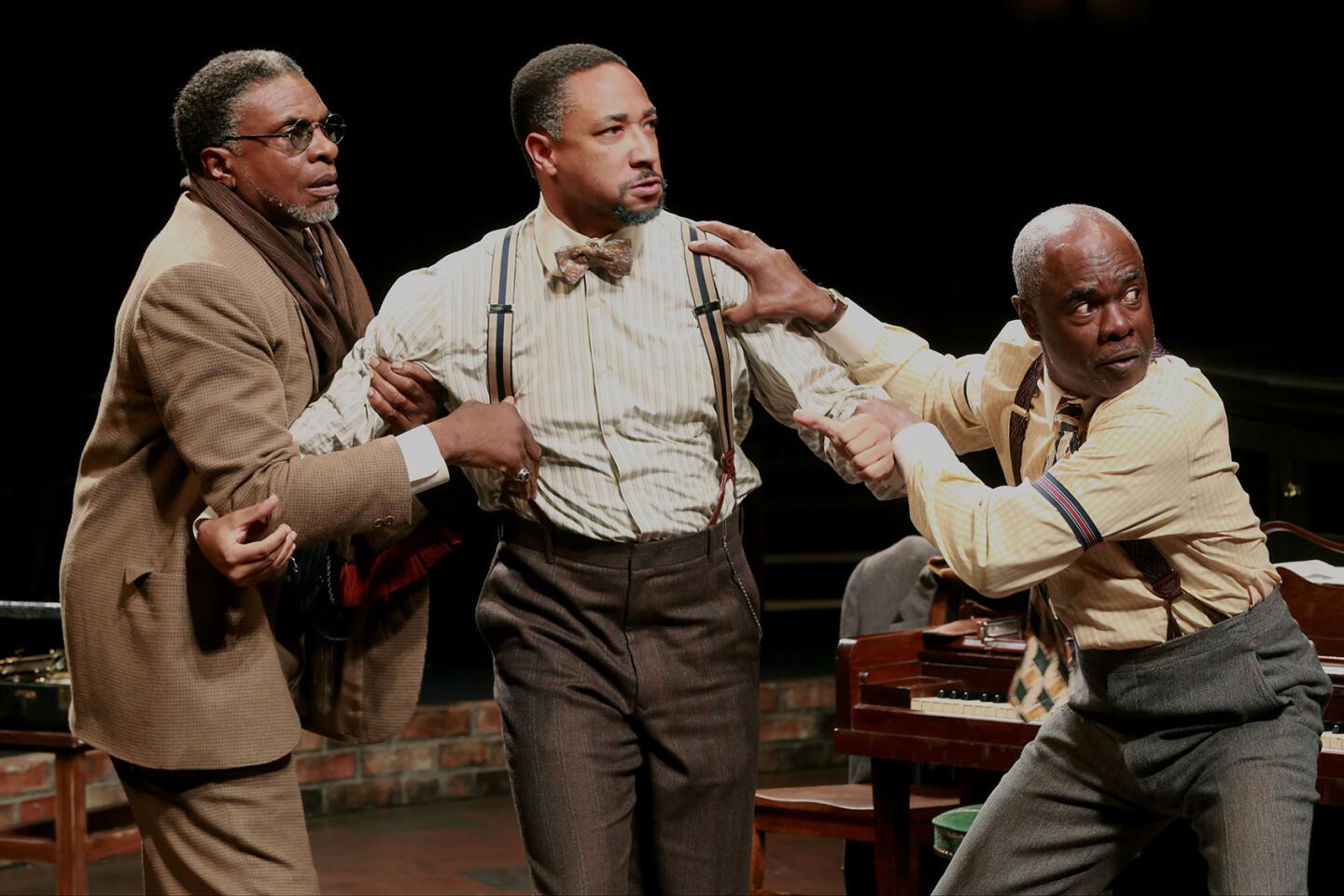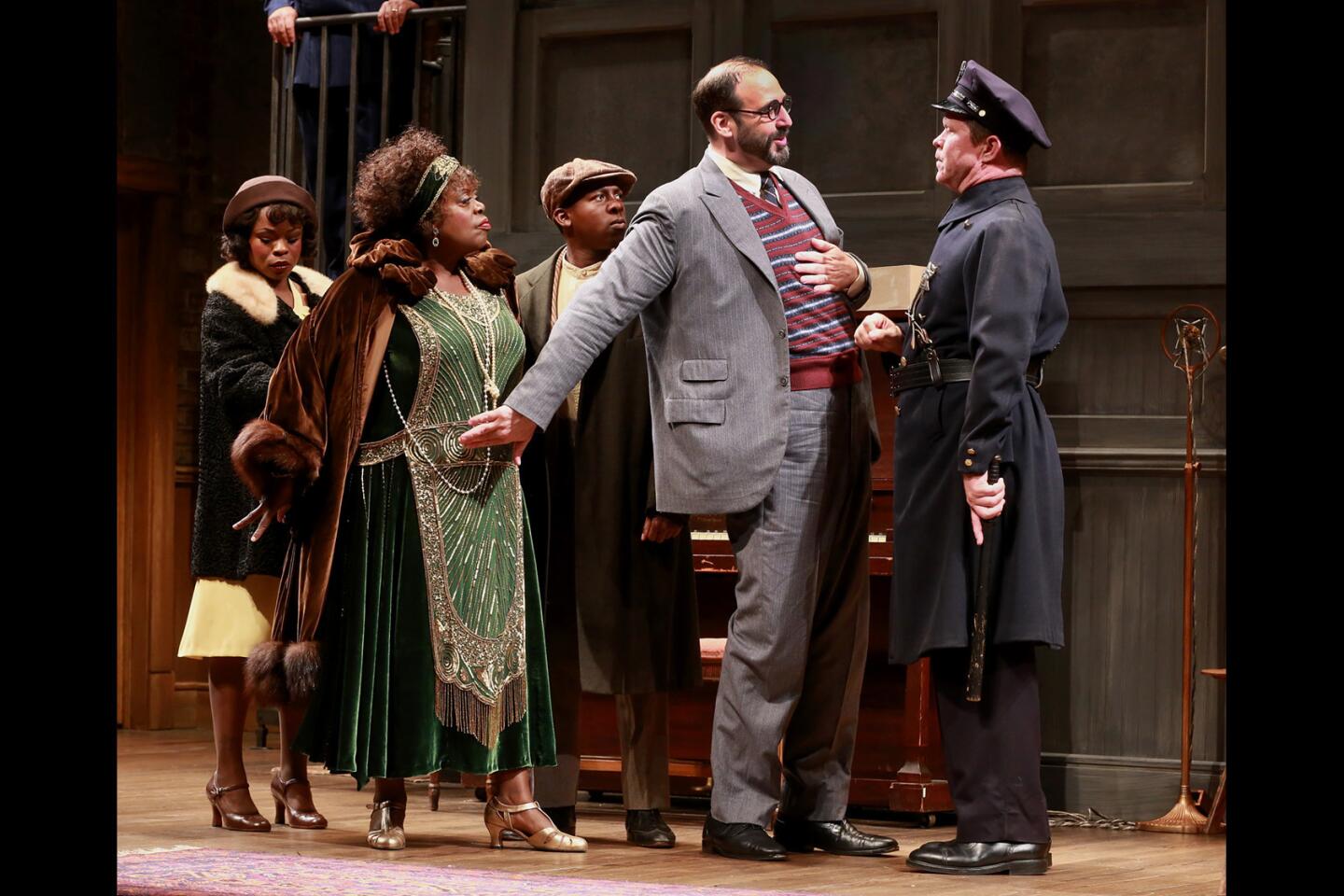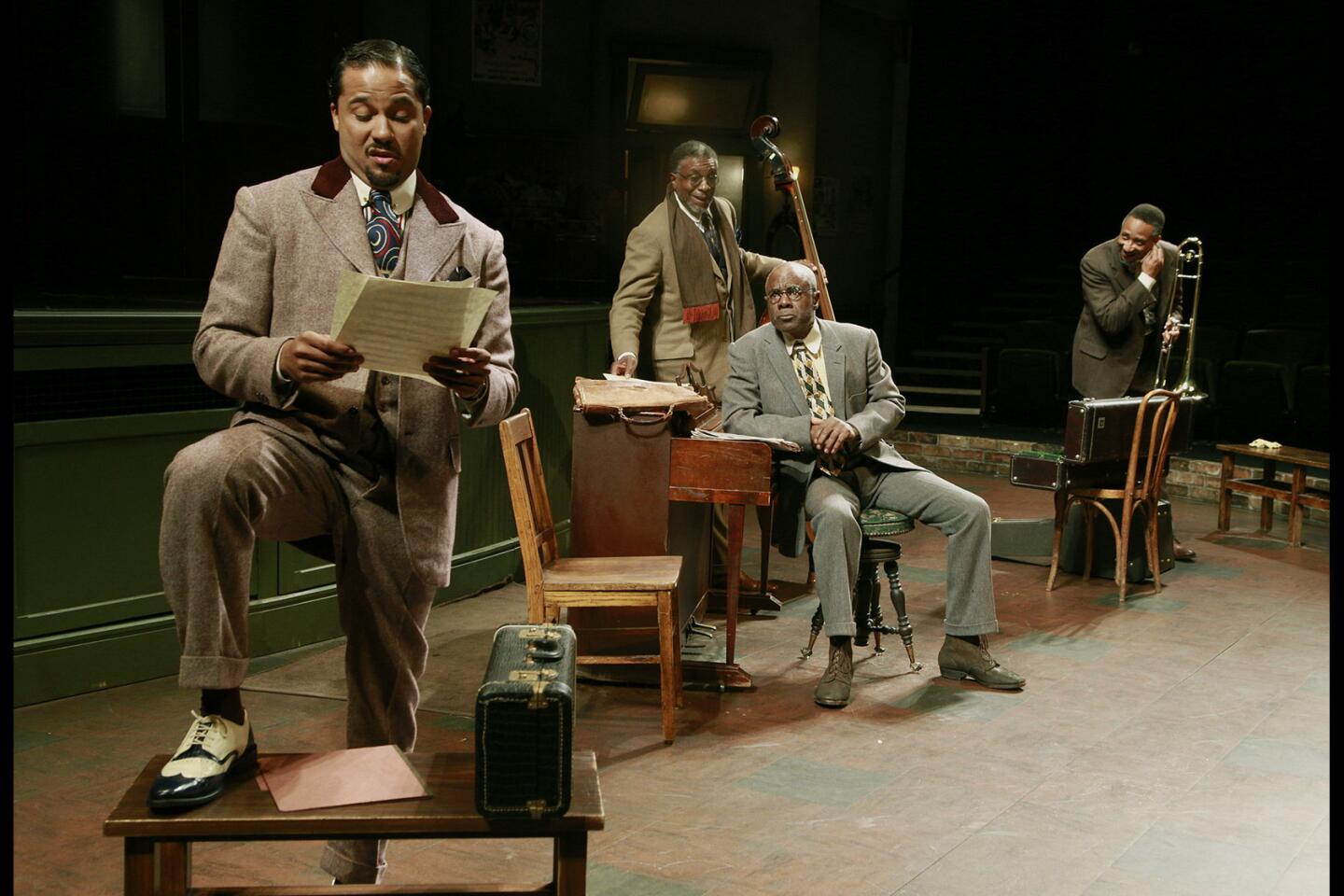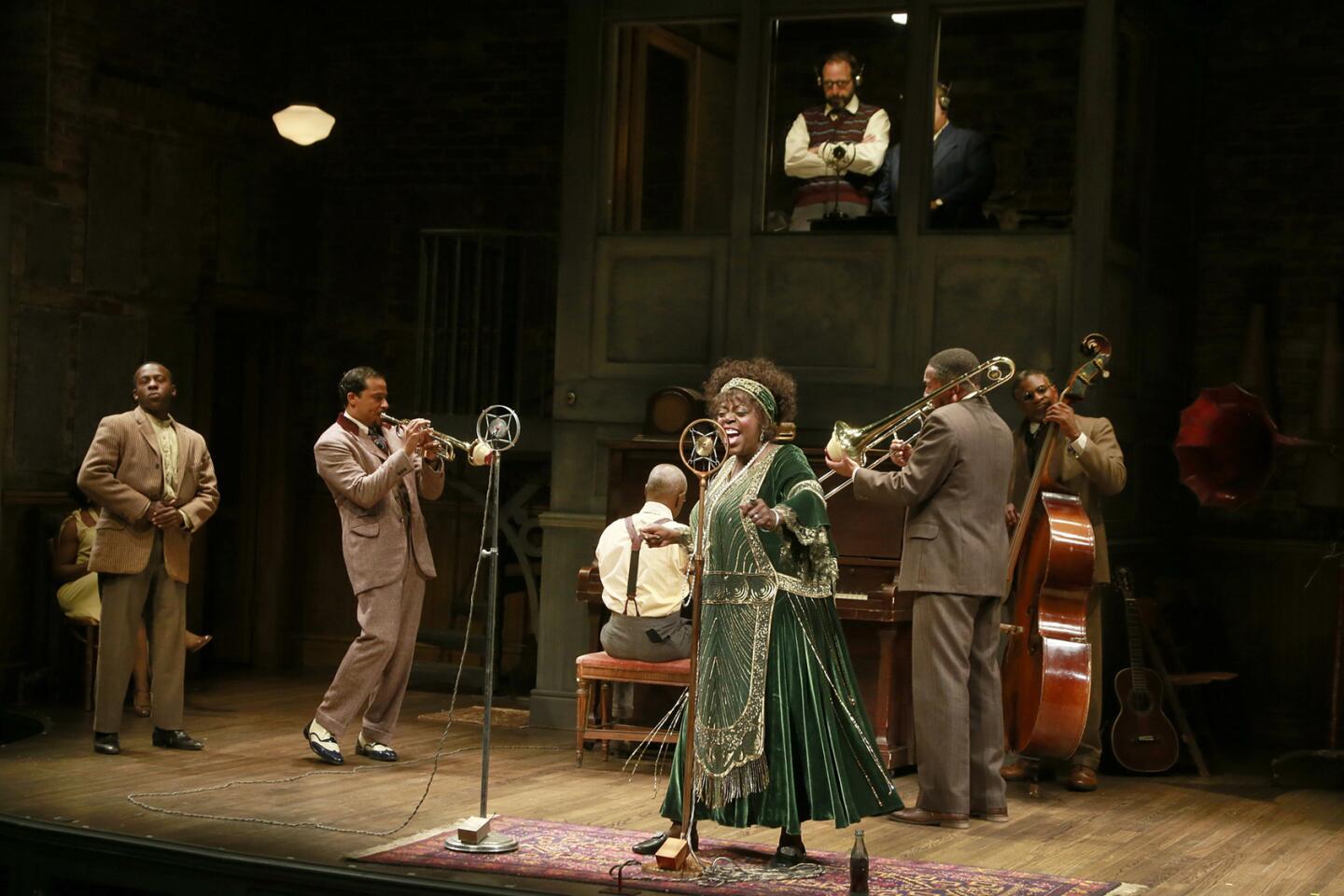Review: Resilience and dignity are the rich, bluesy music of âMa Raineyâs Black Bottomâ
Calls for a national conversation on race are routinely made in the wake of crises, but a better idea would be a requirement for all citizens to familiarize themselves with the work of playwright August Wilson.
An excellent place to start would be the gripping production of âMa Raineyâs Black Bottomâ that opened Sunday at the Mark Taper Forum. This is the play that brought Wilson widespread attention after it moved to New York in 1984, the first in his 10-play cycle exploring 20th century African American experience to make it to Broadway.
For the record:
5:50 p.m. Sept. 12, 2016An earlier version of this review misspelled Ed Swideyâs last name as Swidely.
Centering on a 1927 recording session in Chicago involving blues singer Gertrude (Ma) Rainey (1886-1939), one of the first black singers to be signed to a white label, the drama departs from its historical premise to concentrate on the interaction of the band members. Their banter, razzing, conflicts and lamentations constitute the heart of Wilsonâs play and the soul of his lifeâs work as a dramatist.
Wilsonâs project was to provide a forum for deeper reflection on African American history, culture and identity. Blending carefully studied realism with a lyricism that could turn mystical, his plays set out to reconnect black Americans with the heritage that slavery traumatically severed them from and to share with all theatergoers an understanding of the way historical forces continue to shape our collective consciousness.
This new production of âMa Rainey,â directed by Tony-winning actor Phylicia Rashad, is superior to the 2003 Broadway revival that starred Whoopi Goldberg. As the title character, Goldberg had the diva mannerisms down. But Tony-winner Lillias White (âThe Lifeâ), who plays Ma Rainey here, not only can sing magnificently â she effuses the blues in her sass and strut.
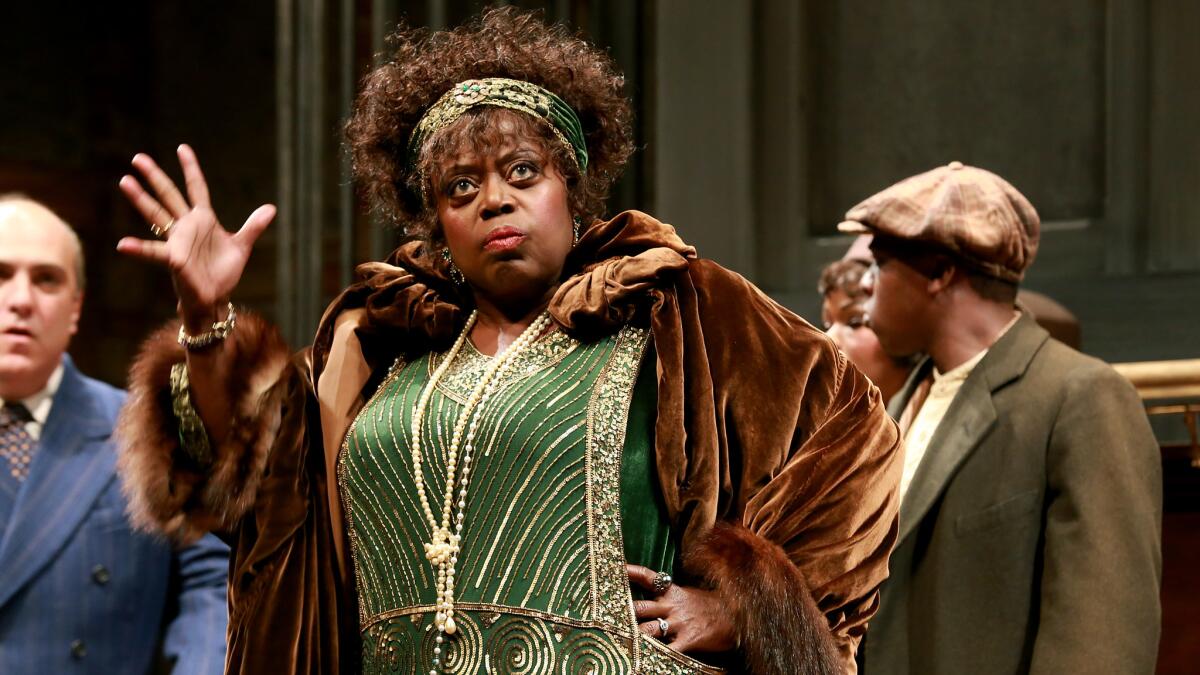
Rashad, who staged a powerful revival of Wilsonâs âJoe Turnerâs Come and Goneâ at the Taper in 2013, is an actorâs director. She shines a light on the complicated humanity of Wilsonâs characters and creates the ensemble unity that is necessary in a play that doesnât make its titular legend the protagonist of the piece.
That role is occupied by Levee (Jason Dirden), a trumpeter with big aspirations and an even bigger chip on his shoulder. Levee arrives a few minutes after the other musicians carrying the new pair of shoes he has just spent a weekâs salary on. He canât help taking a victory lap in them. Part of the money came from beating Cutler (Damon Gupton), the bandâs leader, in a game of craps, but the real source of Leveeâs arrogance is his belief in himself as an artist.
âI ainât like you, Cutler,â he says with characteristic cockiness. âI got talent!â He wants the band to play his version of the song âMa Raineyâs Black Bottom,â a jazzier arrangement more in keeping with the way black music has been evolving in the urban north.
Levee disdains the âold jug-band musicâ and is determined to form his own jazz band. He has even written some songs he hopes the money-grubbing producer Sturdyvant (Matthew Henerson) will turn into hits.
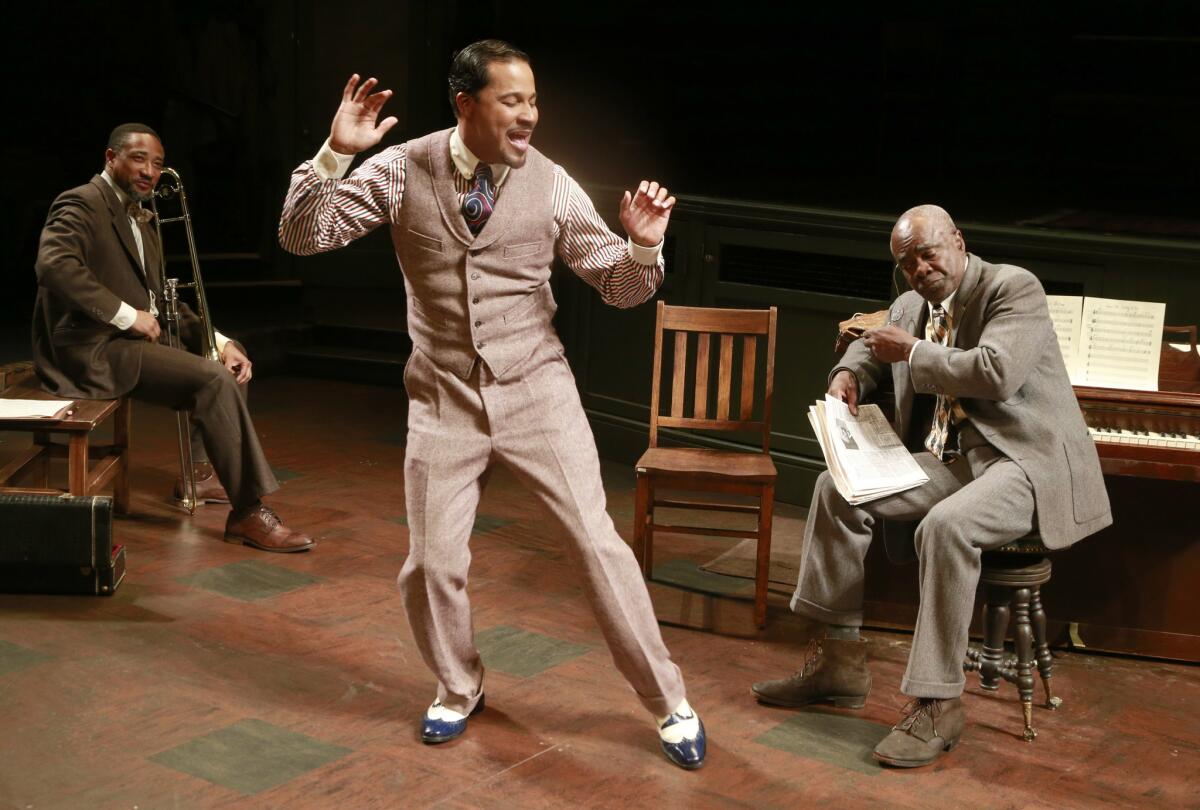
The older band members canât help rolling their eyes at Leveeâs swaggering ways. Toledo (Glynn Turman), the resident philosopher and the only member of the band who can read, tries to school him while Slow Drag (Keith David) looks on with a wry reefer-induced smile.
Ma Rainey will be the one to put Levee in his place, but not before she straightens out her manager, Irvin (Ed Swidey). Accompanied by her nephew, Sylvester (Lamar Richardson), and her lesbian plaything, Dussie Mae (Nija Okoro), she demands that Irvin first settle a little police matter for her. After that messy business is cleaned up, she insists that he fix her car, adjust the temperature in the studio and allow Sylvester, a severe stutterer, to record the intro to one of her songs. Oh, and somebody better run out and get her a Coke if they expect her to sing a note.
Sheâs acting impossible, but as she explains to Cutler, âAs soon as they get my voice down on them recording machines, then itâs just like if Iâd be some whore and they roll over and put their pants on.â Wilson, however, isnât just interested in dramatizing the plight of black talent in a business ruled by mercenary whites. He probes deeply into the cultural allure of her art.
âWhite folks donât understand about the blues,â she tells Cutler. âThey hear it come out, but they donât know how it got there. They donât understand thatâs life way of talking. You donât sing to feel better. You sing âcause thatâs a way of understanding life.â
White folks don’t understand about the blues. They hear it come out, but they don’t know how it got there.
— Ma Rainey in âMa Raineyâs Black Bottomâ
The comedy in âMa Raineyâs Black Bottomâ can get broad, and Rashsad, still best known for playing Bill Cosbyâs wife on the âThe Cosby Show,â doesnât do much to tamp down the shticky routine of Sylvester bungling his lines take after take with his disability.
But the realism of the writing is observed with an unstudied grace. âEffortlessâ is the word that comes to mind, but the truthfulness is too meticulous to be accidental.
Turman (who was so good in Rashadâs staging of âJoe Turnerâs Come and Goneâ) brings to Toledo a doddering wisdom that is still capable of hitting a bullâs-eye. Gupton movingly captures both Cutlerâs steadiness and insecurity. David imbues Slow Dragâs silences with a weariness that is carried lightly but must weigh a ton.
The cast members handle with poise the raconteur demands Wilson places on them. The characters all have stories to tell, and the play allows each of them to share their narrative burdens with one another â tales of dashed hopes and brutal confrontations, of shame, sorrow, and recovered dignity worn like a tattered old suit.
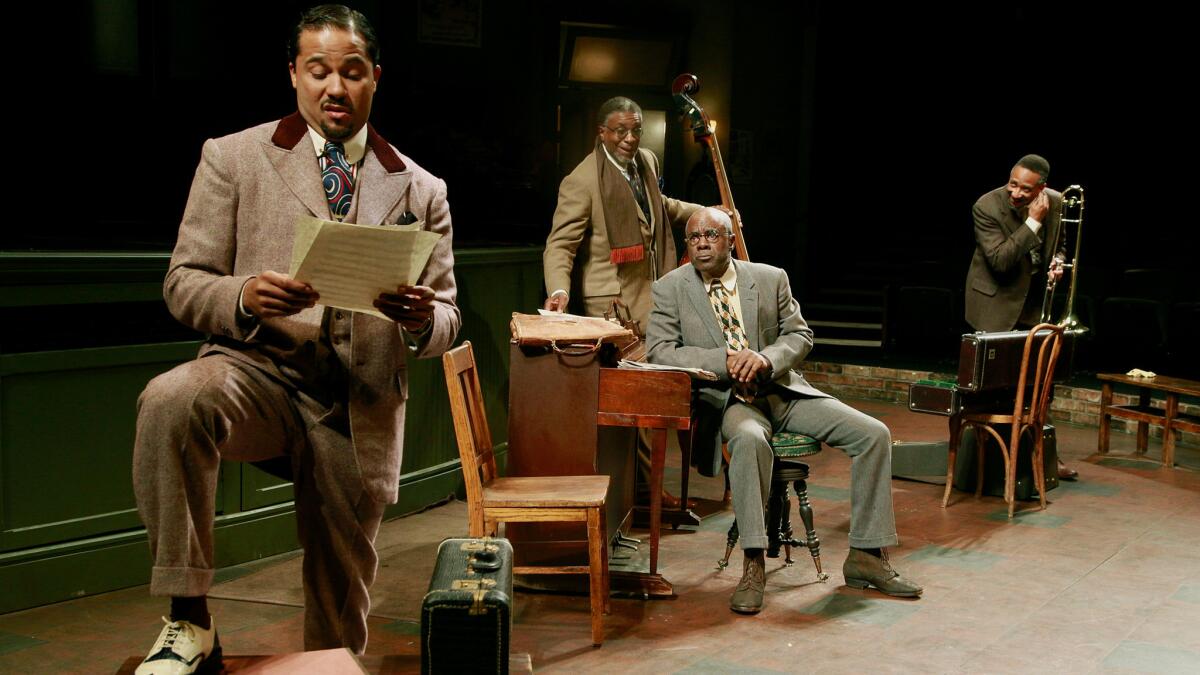
Dirdenâs performance rises in power as Leveeâs anger becomes unhinged. But whatâs most admirable about the production is that even when Levee is challenging God in a furious monologue, the other sidemen are right beside him absorbing and reacting as though this theatrical moment belonged equally to them, which it does.
There is a significant staging issue caused by the split-level layout of John Iacovelliâs set. The scenic design looks terrific, but it relegates the warm-up room, where the band members converse and practice, to a lower level. This muffles the scenes that take place there.
I found myself cocking an ear not to miss a word of the band membersâ conversation, something that I didnât have to do when the action moved to the recording studio upstairs. Whiteâs Ma Rainey has a deliciously commanding voice that allows us to savor every flamboyant remark, but thereâs just a sharper theatrical focus to the upper playing area.
Nothing, however, could diminish the powerful relevance of this revival. The racism that the characters in âMa Raineyâs Black Bottomâ speak of is the same racism that is making headlines today. The context, connection and poetic sympathy that Wilson provides, however, is something that is in rare supply in todayâs cultural landscape.
This play, as with all of Wilsonâs work, challenges and nourishes, shocks and heals. If the playwright doesnât let us off the hook of history, it is because he understands that only through an honest historical reckoning can a richer humanity be found.
------------
âMa Raineyâs Black Bottomâ
Where: Mark Taper Forum, 135 N. Grand Ave., L.A.
When: 8 p.m. Tuesdays-Fridays, 2:30 and 8 p.m. Saturdays, 1 and 6:30 p.m. Sundays. Ends Oct. 16. (Call for exceptions.)
Tickets: $25-$85 (subject to change)
Information: (213) 628-2772 or www.centertheatregroup.org
Running time: 2 hours, 35 minutes, including one intermission
Follow me @charlesmcnulty
ALSO
The Troubies turn an ancient Roman comedy into a modern âHaunted House Partyâ
AmĂŠlie, Big Daddy, Hedwig: Familiar names hit SoCal stages this fall
Seeking answers to L.A.âs 99-seat theater crisis in the legacies of two theatrical trailblazers
More to Read
The biggest entertainment stories
Get our big stories about Hollywood, film, television, music, arts, culture and more right in your inbox as soon as they publish.
You may occasionally receive promotional content from the Los Angeles Times.
